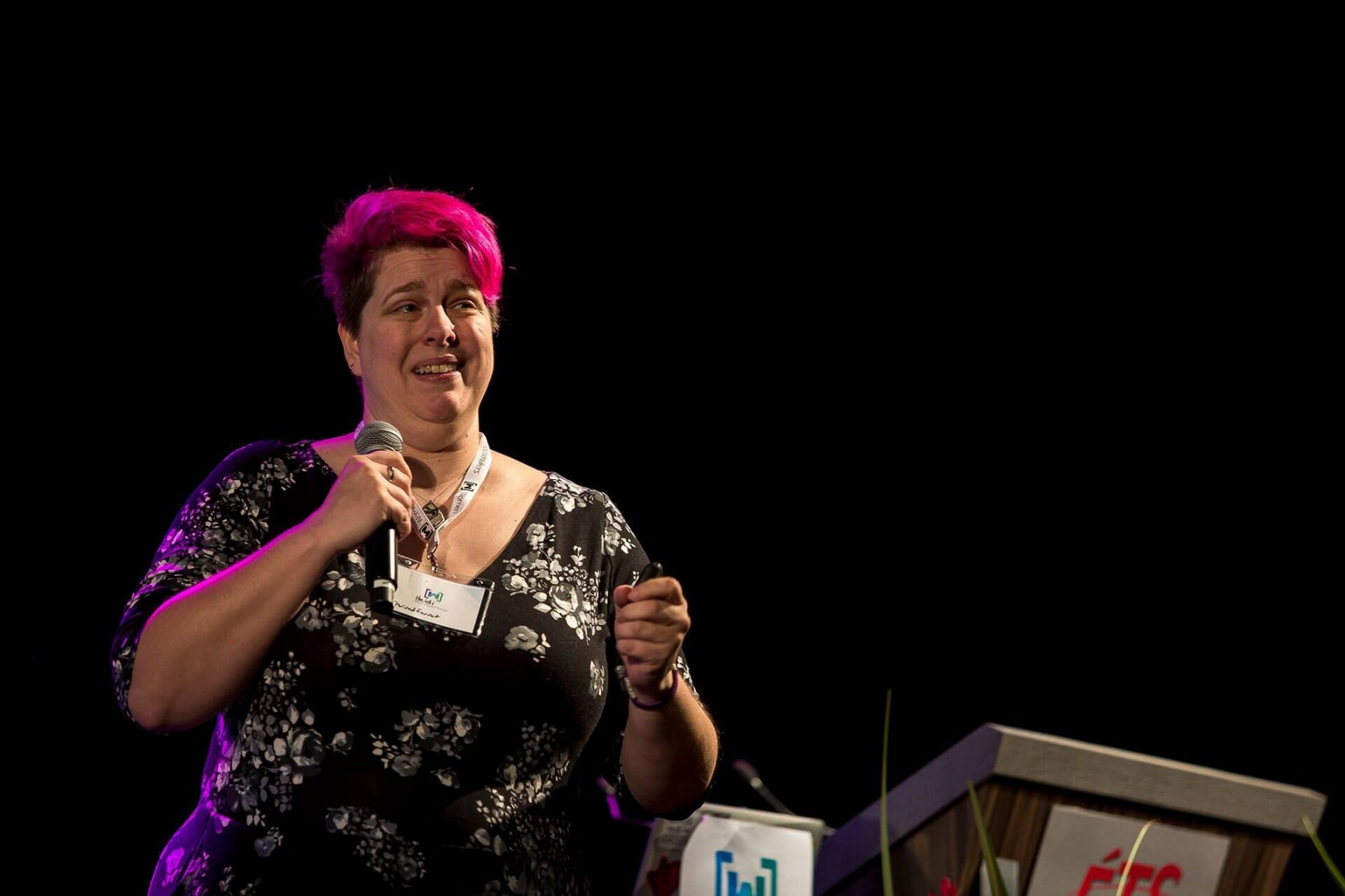I don’t write code for a living, and I never have. Developer has never been part of my job titles, and my Github history won’t impress anyone. I think that’s why people are surprised that I speak at developer conferences — next month I’m going to RubyConf, PyconCA, and Nodevember.

When I started speaking at conferences, I thought I was only “allowed” or “entitled” to speak at technical writing and generalist conferences. As I got more confident in my messages, I realized that there is a lot of value in cross-pollination of ideas. As I talked to more developers, I realized that the talks they found the stickiest were not about how to do something, but rather, what it was possible to do.
Think about talks that you remember after the conference. Are they the bravura live-coding examples of how to execute something tricky or new? Or are they the talks about what you could do, how you could think about things in a different way, what might be possible in the future? The demonstration of current things is important, but so is the discussion of where and who we want to be in the. future.
Most conference committees seek to balance talks and speakers based on experience, representation, intended audience level, technical depth, and appeal to attendees, sponsors, and employers. We need to have deeply technical talks, and we need to have talks about mental health and accessibility and usability. it’s not either-or, it’s also-and.
So I speak at developer conferences to bring balance to the force. I also do it because I want to show up and be technical and expert and pink-haired in the world. I want to share my decades of experience with people who have poured their energy into learning different things. I think I bring value, and evidently conference organizers agree.

Have you thought about what you can add to a conference by being different? If you feel like you can’t compete because you don’t have anything new to say about the topics that are usually covered, consider covering a topic that you haven’t seen at the conference. If there are a lot of code demonstrations, consider doing a feature overview. If you have expertise in something that you can relate to the conference topic, sometimes it helps people grasp what you’re talking about in a different way. I have a talk about how knitting and documentation and how we teach code are all linked together.

If you’re a “non-technical” technical person, don’t let that stop you from proposing to conferences – you still have valuable and meaningful experience to share. If you’d like to brainstorm about it, go ahead and leave me a message.


Comments
One response to “Why I Speak at Developer Conferences”
Awesome Heidi! As you know, I’m also a writer who has spoken at dev conferences (OSCON, Fluent), and I agree with your thoughts on X-pollination.
Dev ideas don’t get anywhere without excellent documentation, and one way to promote that ideal is to have more writers speak at dev conferences.
Conversely, many devs have excellent ideas on creating better documentation, and I encourage them to speak at writer conferences such as Write the Docs.